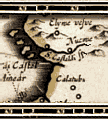







|
|
|
 here seem to be two irreconcilable camps of RPG players. The real-time players like the fast-paced action, while the turn-based players like the strategy and the separation of the player's skill from the character's. Even on our own team, we have people who will probably only play in one mode. So we decided to make the game playable both ways.
here seem to be two irreconcilable camps of RPG players. The real-time players like the fast-paced action, while the turn-based players like the strategy and the separation of the player's skill from the character's. Even on our own team, we have people who will probably only play in one mode. So we decided to make the game playable both ways.
Basically, your Dexterity stat determines your Speed derived stat. In real-time play, the Speed stat determines how fast your character can perform actions. The higher the stat, the faster you can do things (we literally adjust the frame rate on your animation). In turn-based play, the Speed stat determines how many action points you have to spend in one turn, and every action costs a predetermined number of points.
The hardest part of having two combat modes is balancing two combat systems, both of which rely on the same underlying stats. By basing both systems on character Speed, I think we have avoided a lot of issues that might have arisen.
Health - This is your character's life-force. When Health reaches zero, the player is dead. Fatigue - This is the stamina of you character which affects combat, running, and spellcasting. Spells are powered by the caster's own energy. Each spell drains the caster's fatigue, and when that fatigue reaches zero, the caster will fall unconscious. Fatigue is recovered fairly quickly, but it can be drained by other means as well, like running, fighting, or even walking while heavily encumbered. A caster will have to watch his fatigue at all times. Combat Skills - There are 5 combat specific skills: Bow, Dodge, Melee, Throwing, and Firearms.
Critical Hits - Critical hits and critical failures add to the complexity of combat. Critical hits can bypass a target's Dodge skill or armor resistances, do maximum damage or bonus damage, or stun or knock out an opponent. Critical failures can hurt the attacker or his weapon. Critical hits (or misses) occur with a chance proportional to the amount of success (or failure) of the roll. Fate Points - A player can use fate points to affect fate in the game, by either changing an existing condition or guaranteeing an event to occur. Examples of using fate points are:
Fate points are awarded in the game for only the most dangerous of deeds, such as killing a huge monster or assassinating a town's mayor. Thus, a player may get the same experience for killing 50 orcs as for killing the monster, but he will not get any fate points for the former act. This encourages you to be a "hero" or "villain" in the game, since dramatic actions tend to get rewarded. |
 Other factors can affect character speed in both modes. For example, weapons have speed factors, making a sword faster than an axe, for instance. The nice thing about this system is it is consistent, so fast characters are faster in either mode than slow characters. And the player can switch modes during play, so you can experiment with which mode you like best.
Other factors can affect character speed in both modes. For example, weapons have speed factors, making a sword faster than an axe, for instance. The nice thing about this system is it is consistent, so fast characters are faster in either mode than slow characters. And the player can switch modes during play, so you can experiment with which mode you like best.